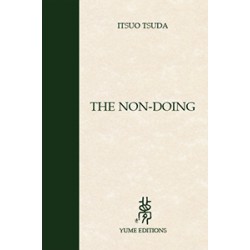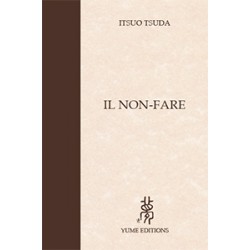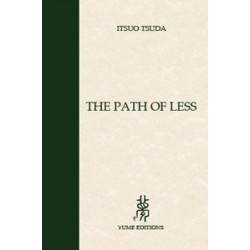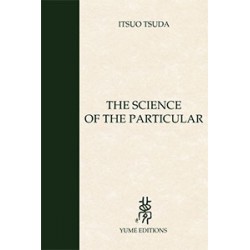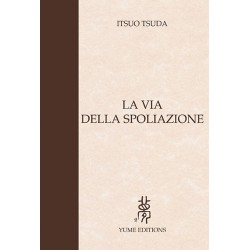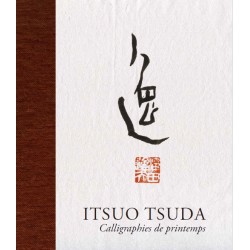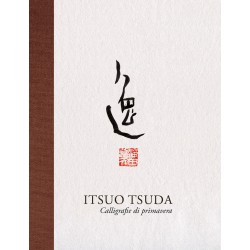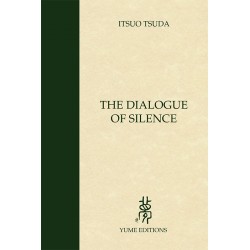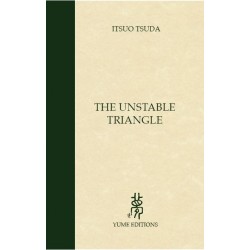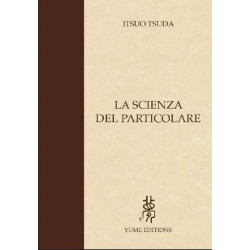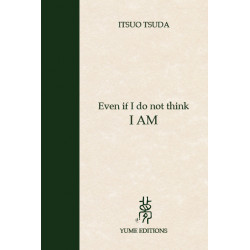Aucun produit
Grâce à la philosophie qu'il a développée, Itsuo Tsuda (1914-1984) contribue à l'évolution de l'humanité. En créant un pont entre l'Est et l'Ouest, il présente les connaissances qu'il a reçues de maîtres tels que Haruchika Noguchi, Morihei Ueshiba, Marcel Mauss, Marcel Granet et autres. Il y a là un défi dans ce domaine, où l'être humain est con...
Grâce à la philosophie qu'il a développée, Itsuo Tsuda (1914-1984) contribue à l'évolution de l'humanité. En créant un pont entre l'Est et l'Ouest, il présente les connaissances qu'il a reçues de maîtres tels que Haruchika Noguchi, Morihei Ueshiba, Marcel Mauss, Marcel Granet et autres. Il y a là un défi dans ce domaine, où l'être humain est considéré dans toute sa dimension qui transcende les époques, les lieux ou une tradition donnée. L'être humain en tant que tel dévoile la vie dans ses multiples aspects.
L'auteur écrit dans un style simple et direct ; son choix des mots, précis n'est jamais laissé au hasard, et a une grande importance. Le lecteur est pris par le rythme d'une respiration. Le message, près de trente ans après sa mort, demeure toujours pertinent. Tsuda aborde le thème de la philosophie du non-faire et celle du ki au travers du Katsugen Undo, du seïtai et de l'Aikido : qui sont tous des moyens permettant le réveil de la sensibilité et la redécouverte de la liberté intérieure. Les êtres humains possèdent déjà tout ce qu'il faut en eux même, mais en raison des conditions actuelles du monde, ils doivent se retrouver et redécouvrir leur liberté fondamentale.
Itsuo Tsuda Il y a 16 produits.
-
The Non Doing
“Europeans can only act if they understand the reason why beforehand. Hence the need for a development in the realm of thought. This work may prove interesting because, if Europeans understand, other people will follow.There is a world of difference between having a map with the water sources marked on it and actually quenching one's thirst there.” Itsuo...
18,00 €Disponible -
Il Non Fare
«L’Europeo non può agire se, prima, non ne capisce la ragione. Da qui la necessità di uno sviluppo nel campo del pensiero. Questo lavoro può essere interessante, perché se l’Europeo capisce, gli altri popoli seguono.C’è un mondo di differenza tra il fatto di avere una carta che indica le sorgenti d’acqua e il fatto di dissetarcisi.» (...)Itsuo Tsuda
20,00 €Disponible -
The Path Of Less
“The area in which the West has made its precious contribution to humanity is Evidence. Today, we are in a transition period, the century of uncertainty, in which values solidly entrenched for centuries are being questioned. (...) Indeed, nothing about the aspects of ki is obvious. When they become obvious, they cease to be ki and fall into categories."...
20,00 €Disponible -
The Science of the Particular
"By choosing this somewhat absurd title, The Science of the Particular, I've unintentionally challenged Aristotie's saying that there is no science but of the general. […] And yet a conclusion drawn from general data is of no help when it cornes to knowing exactly what occurs in a particular case, at the vert' moment when this issue takes on vital...
20,00 €Disponible -
La Via della Spoliazione
"Abbandonare la via dell'acquisizione dalla quale il mondo intero ha tratto beneficio ma che oggi ha raggiunto uno sviluppo inquietante: Tsuda ci insegna in queste pagine a spogliarci di tutto ciò che è inutile per poter vedere le cose con una nuova, maggiore coscienza." Itsuo Tsuda
20,00 €Disponible -
One
"As a component of society, individuals struggle with structure,whether they like it or not. Can the acquisition of power givethem a chance of fulfilment? Over time, only our way of life haschanged. All problems remain unchanged, including life anddeath. No “recipe” can be valid as long as the Individual doesnot feel alive."
20,00 €Disponible -
Itsuo Tsuda Calligraphies de printemps
Itsuo Tsuda, Calligraphies de Printemps Une plongée au cœur de l’œuvre calligraphique d’Itsuo Tsuda
75,00 €Exclusivité web !Rupture de stock -
Itsuo Tsuda Calligrafie di primavera
Itsuo Tsuda, Calligrafie di primavera Un'immersione nell’opera calligrafica di Itsuo Tsuda Spese di spedizione per l'Italia per un libro: 11 €
100,00 €Exclusivité web !Disponible -
The Dialogue of silence
“This awakening does not come as the result of mental speculations or moralizing agressions. At one point, when one is not expecting it, the door opens and the dialogue begins in silence.”
20,00 €Disponible -
The Unstable Triangle
“So it is not impossible, even for civilized humans, to free themselvesfrom the rhetoric world in which they are living"
20,00 €Disponible -
La Scienza del Particolare
Itsuo Tsuda parla dell’individuo, del ki, della respirazione e di come sia possibile risvegliare la propria sensibilità e indica la via che permetterà di ritrovare la propria libertà interiore. Appunto non la scienza del generale, ma la scienza del particolare, in cui l'individuo è considerato nella sua totalità ed unicità.
20,00 €Disponible -
Even if I do not think I am
“It is certainly not easy to free oneself from the hold of the past and to face the present. What I am trying to do is to direct your attention to the unsuspected richness of our unconscious being.”
20,00 €Disponible

